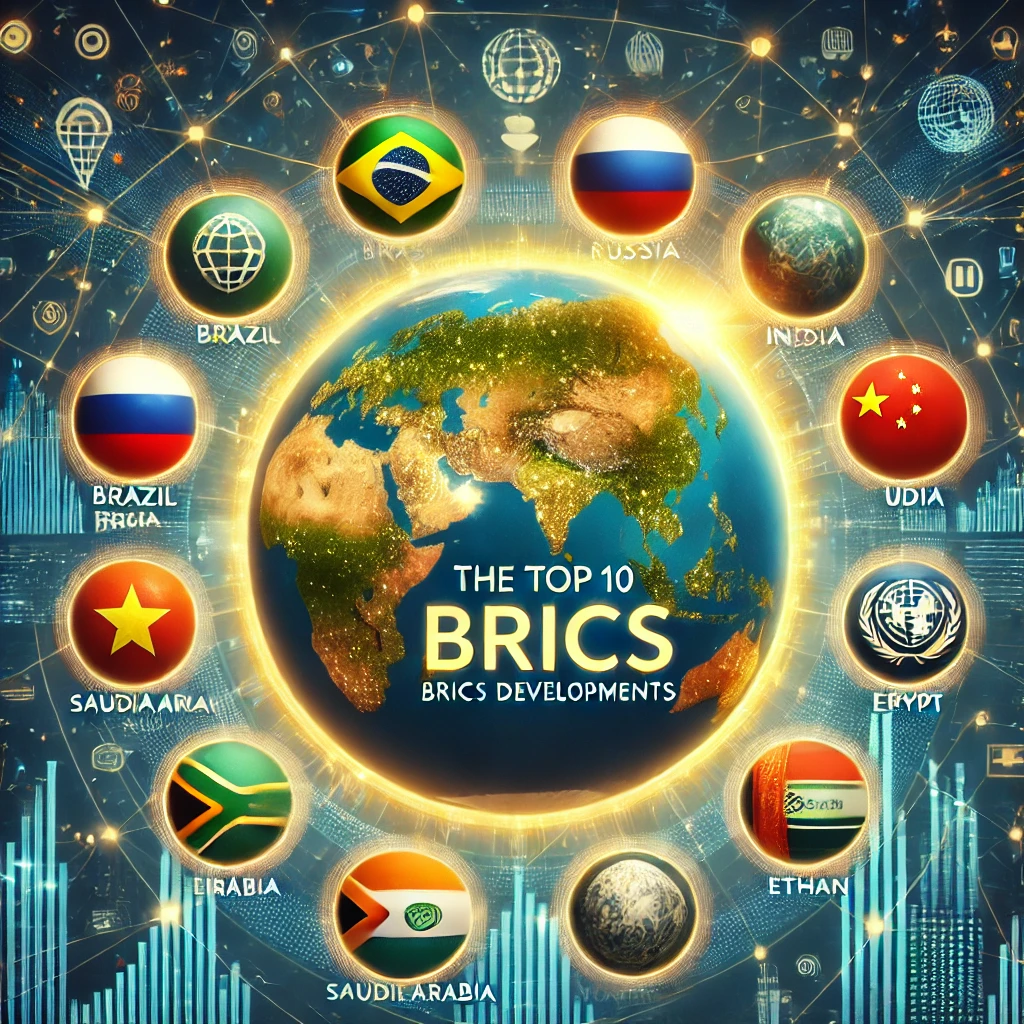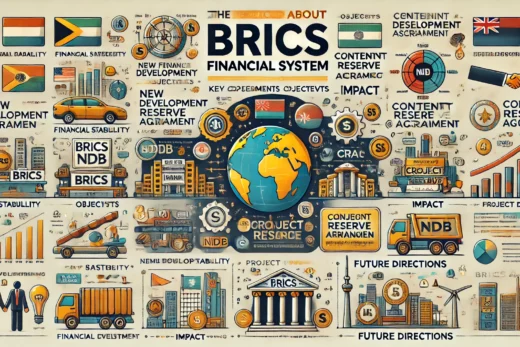
1. Expansion of Membership
Details:
Five countries—Saudi Arabia, UAE, Egypt, Iran, and Ethiopia—have officially joined BRICS, bringing the total membership to ten. This expansion aims to diversify and strengthen the bloc’s economic base, enhancing its influence in global economic and geopolitical arenas. The inclusion of these nations signifies BRICS’ growing appeal as a counterbalance to Western-dominated institutions like the IMF and World Bank.
Sources:
2. Economic Growth and Potential
Details:
BRICS nations exhibit significant economic growth potential, especially when adjusted for PPP (Purchasing Power Parity). In PPP terms, BRICS economies contribute $56 trillion compared to the G7’s $52 trillion. This adjustment highlights the bloc’s increasing economic influence and potential for higher living standards in member countries, despite not surpassing the G7 in nominal GDP.
Sources:
3. BRICS Chairmanship
Details:
Russia, as the 2024 BRICS Chair, aims to strengthen multilateralism and enhance cooperation in various sectors, including science, technology, healthcare, and environmental protection. The chairmanship focuses on foreign policy coordination, promoting economic partnerships, and integrating new members. Over 200 events are planned across Russian cities to support these goals.
Sources:
4. New Development Bank (NDB)
Details:
The New Development Bank (NDB) aims to provide an alternative to Western-led financial institutions by financing infrastructure and sustainable development projects in emerging economies. The inclusion of new BRICS members is expected to strengthen the NDB, making it a more formidable competitor to the IMF and World Bank.
Sources:
5. Challenges of Single Currency
Details:
While the concept of a single BRICS currency remains distant, local currencies or the yuan are increasingly used in bilateral trade among BRICS nations. The differing political systems, economic structures, and cultural norms pose significant challenges to achieving a unified currency. The yuan-based payment system is gaining traction but still faces hurdles in becoming a global medium of exchange.
Sources:
6. Geopolitical Dynamics
Details:
The expansion of BRICS is seen as a strategic move to challenge US influence and promote a multipolar global economic landscape. However, internal geopolitical differences, such as India’s alignment with Western alliances against China, add complexity to achieving a unified front. The bloc’s ability to navigate these dynamics will be crucial for its cohesion and effectiveness.
Sources:
7. Youth Policy and Education
Details:
The BRICS Youth Policy Ministers’ meeting in Ulyanovsk and the BRICS International School in Moscow are part of efforts to enhance youth cooperation and education among member states. These initiatives aim to foster cultural exchange, leadership development, and educational opportunities for young people in BRICS countries.
Sources:
8. Economic Representation
Details:
The inclusion of Saudi Arabia and UAE, major oil producers, is anticipated to significantly boost BRICS’ global economic influence. These countries bring substantial financial resources and geopolitical clout, enhancing the bloc’s ability to diversify trade and investment partnerships beyond traditional Western power centers.
Sources:
9. Strategic Footprints in Africa
Details:
The addition of Ethiopia and Egypt increases African representation within BRICS. This is expected to foster greater economic collaboration and development initiatives across the continent. The strategic engagement of BRICS members in Africa aims to enhance infrastructure development, technology transfer, and skill enhancement, promoting mutual prosperity.
Sources:
10. Policy Coordination and Development
Details:
Russia, under its BRICS chairmanship, is focusing on the practical implementation of strategies for economic partnership, innovation cooperation, energy, and food security. Over 200 events are planned across Russian cities to promote these initiatives, fostering closer cooperation and coordination among member states.
Sources:
These developments indicate a significant shift in global economic and geopolitical dynamics, with BRICS positioning itself as a major player on the world stage.



